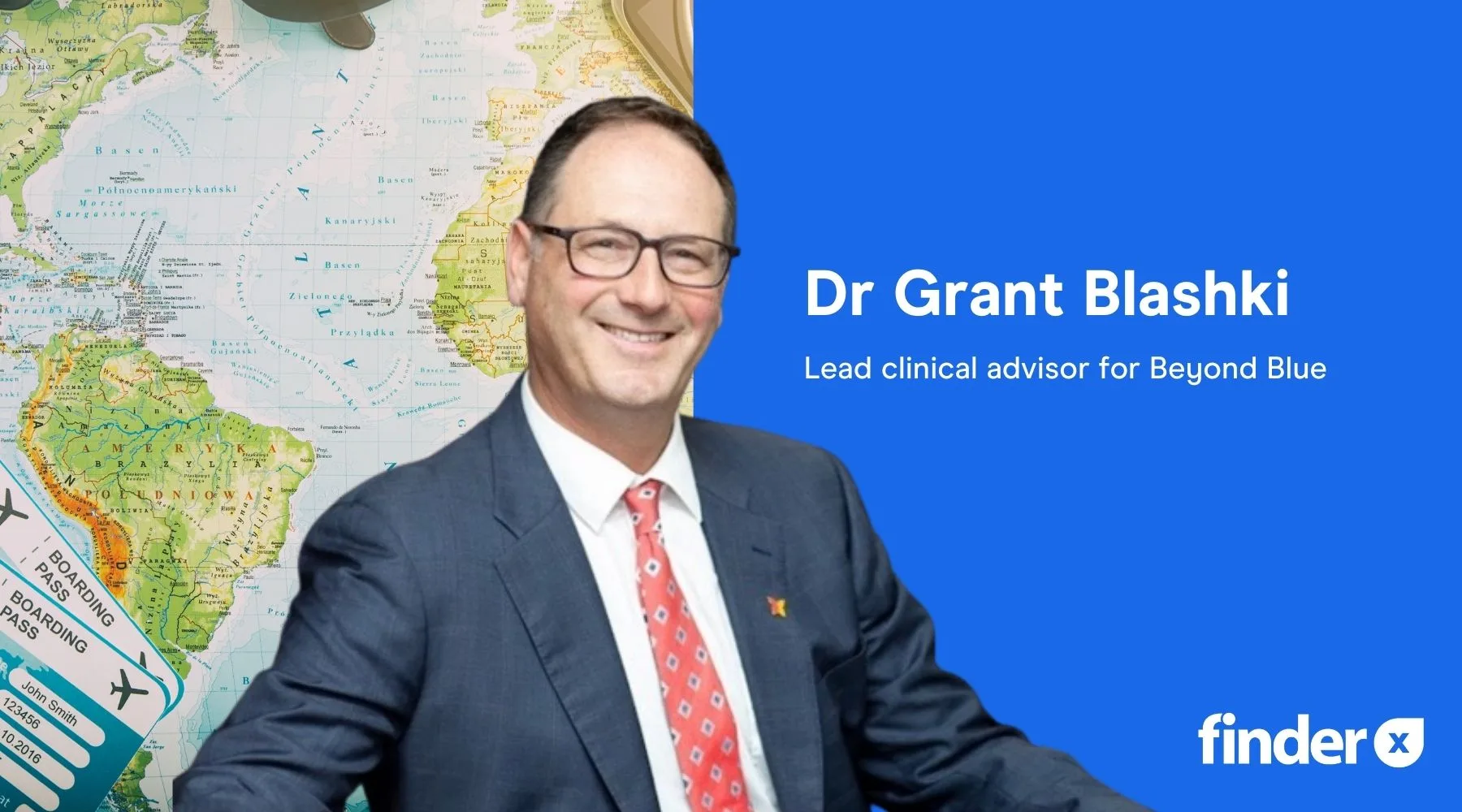6 ways to manage your travel anxiety in the wake of COVID

As a GP, I see many patients experiencing travel anxiety, particularly fear of flying. However, it's reassuring to know the vast majority overcome their fears with some simple strategies.
Airline travel is one of the great pleasures of modern life allowing people to see new places, return to favourite locations or re-engage with friends and family.
However, air travel can be a source of high anxiety for many people. It includes worries about turbulence, fear of heights, claustrophobia, catastrophic scenarios replaying in their mind about plane accidents and worries about having an embarrassing panic attack during a plane trip.
Those who have experienced any of these know they are not trivial concerns. They cause enormous stress, limit people's enjoyment and even cause conflict in families when others can't understand their fears.
The good news is there are very effective treatments and strategies that can greatly assist people whether it's mild travel anxiety through to people who have completely withdrawn from travelling.
Beyond Blue's guide to what works for anxiety summarises the scientific evidence behind different approaches to managing travel anxiety.
Here are my strategies for moving through anxiety when you travel:
1. Get your facts straight
One part of travel anxiety is irrational thinking and catastrophic perspectives on the risks of travel.
Specific anxieties differ from person to person, but here are some common perspectives that can help:
- Remember that flying is considered the safest form of travel.
- Turbulence is not a sign of an impending accident. I encourage my patients to think of it as little waves in the ocean like in a boat trip.
- Thousands of planes are safely in the air and today, you just happen to be in one.
2. Learn strategies to keep calm
Have some good strategies to turn down your body's stress reaction.
Slow, deep breathing exercises are enormously helpful especially if you practice them before the trip. Bring along some distractions such as a crossword or sudoku, listen to some calm music or a meditation exercise or try a visualisation.
Here's why I refuse to stop travelling this year (despite cost of living increases).
3. Take small steps
Build up your travel confidence in small steps. Start with a short trip to the airport, then a short domestic flight and maybe a longer trip if you can afford it.
Each trip will help you grow your confidence. Take a selfie when you arrive at your destination to remind yourself of your achievements.
4. Avoid avoidance
As a GP, I remind patients of my motto, "avoid avoidance".
Dodging the problem won't help. In the long run, people's opportunities and world shrink when anxiety wins.
Every time you travel, the anxiety loses its power.
Ask a travel insurance expert: What cover do I need for my Christmas trip?
5. Seek professional help if needed
Engaging professional help may be the answer for people with more severe anxiety or phobias, including seeing a psychologist who can provide a clinical approach called cognitive behavioural therapy (CBT).
CBT can be effective for mild to moderate cases. For people with more severe symptoms, a professional can explore other solutions, including medications.
6. Take the first step
Beyond Blue offers support, advice and referrals at no cost on 1300 22 4636. People can also seek online support at beyondblue.org.au.
Our online forums are also a popular option at forums.beyondblue.org.au.
Travel anxiety is one of those conditions where the treatments are very effective, so get help early and book yourself that next well-deserved holiday.
Dr Grant Blashki is a practicing GP, lead clinical advisor for Beyond Blue, an associate professor at the Nossal Institute for Global Health and an associate at Monash Sustainable Development Institute. He is also a lead editor of Future Leaders books and an honorary professor at Shenzhen Luohu Hospital Group in China.
Ask a question
